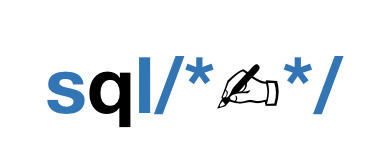database/sql
SQLCommenter provides drop-in replacement for go’s database/sql library. You can start using the SQLcommenter’s database/sql without changing your business logic code and use one of the framework instrumentation to proapagate tags and traceparent to the SQL queries.
Installation
go get -u github.com/google/sqlcommenter/go/database/sql
Usage
Please use the sqlcommenter’s go-sql database driver to open a connection and use that connection to execute statements.
Due to inherent nature of Go, the safer way to pass information from framework to database driver is via context. So, it is recommended to use the context based methods of DB interface like QueryContext, ExecContext and PrepareContext.
import (
"database/sql"
gosql "github.com/google/sqlcommenter/go/database/sql"
sqlcommentercore "github.com/google/sqlcommenter/go/core"
_ "github.com/lib/pq" // or any other database driver
)
var (
db *sql.DB
err error
)
db, err = gosql.Open("<driver>", "<connectionString>", sqlcommentercore.CommenterOptions{
Config: sqlcommentercore.CommenterConfig{<flag>:bool}
Tags : sqlcommentercore.StaticTags{<tag>: string} // optional
})
Configuration
Users are given control over what tags they want to append by using core.CommenterOptions struct.
type CommenterOptions struct {
EnableDBDriver bool
EnableTraceparent bool // OpenTelemetry trace information
EnableRoute bool // applicable for web frameworks
EnableFramework bool // applicable for web frameworks
EnableController bool // applicable for web frameworks
EnableAction bool // applicable for web frameworks
EnableApplication bool // applicable for web frameworks
}
Users can also provide static tags they want to use by using core.StaticTags struct. These tags are optional. If not provided, the Application tag will get auto-populated from the user-project’s module-name in go.mod. DriverName is set to the driver-name provided in gosql.Open(driverName, ...) call.
type StaticTags struct {
Application string
DriverName string
}
The driver will try to use the module-name from the project’s go.mod as the application name if EnableApplication is true and no Application string is provided (works correctly for compiled go applications).
 sqlcommenter
sqlcommenter